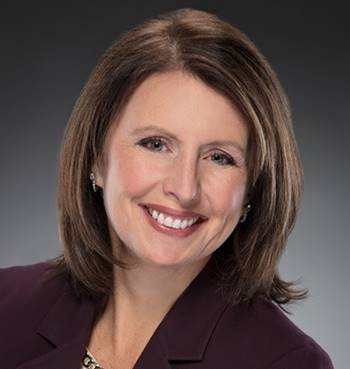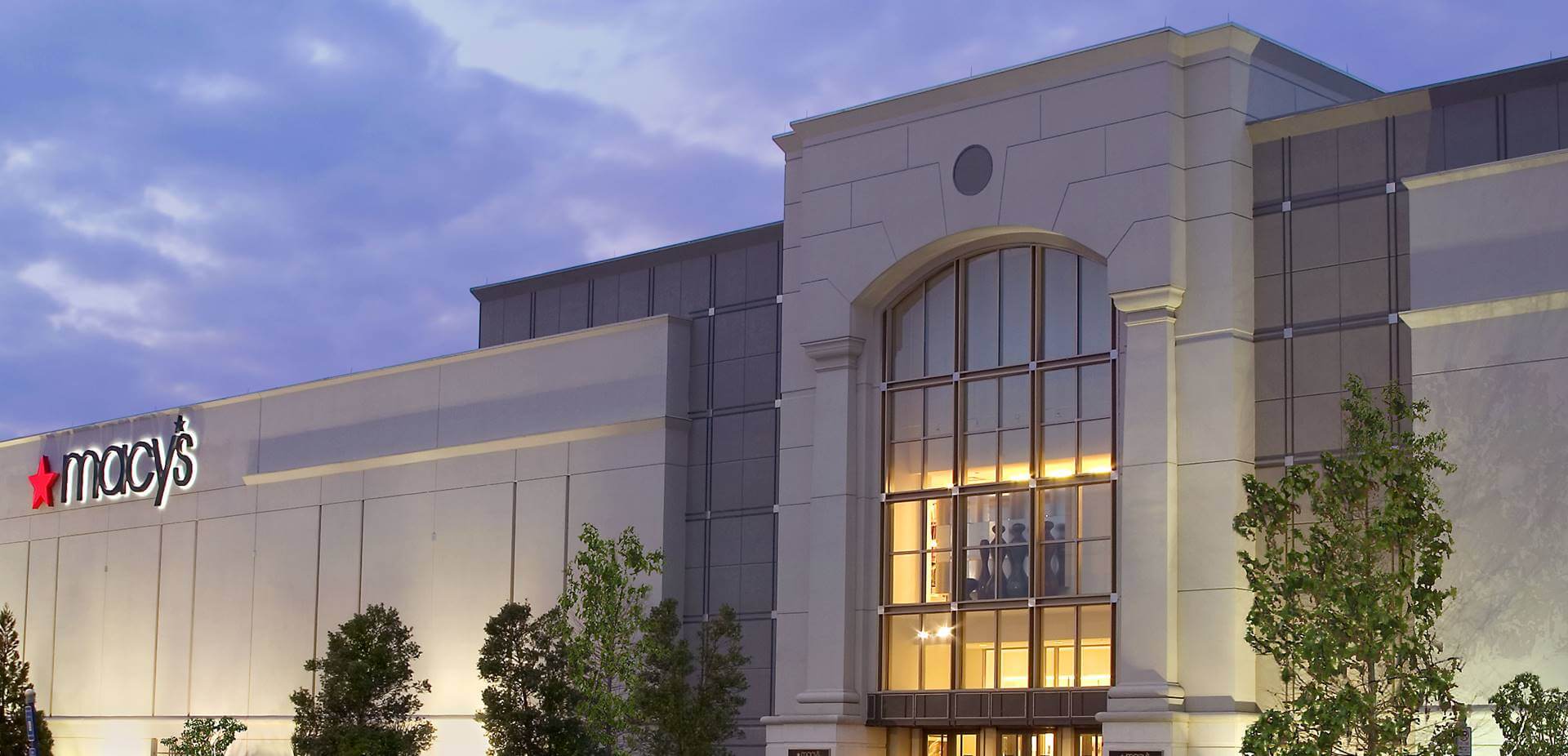Steve Rovniak: Can you provide an overview of your career leading up to your current CIO role at Macy’s, Inc.?
Laura Miller: My career has been varied in terms of industries, but my jobs have always been in technology. I traversed across different industries because I wanted to make sure that I had a really good understanding of all the disciplines necessary to eventually get to a CIO position.
 What is beneficial about not being industry-specific is that I can bring more of a consultative background to an organization. I know the best practices of several industries and can bring them to wherever I'm working currently.
What is beneficial about not being industry-specific is that I can bring more of a consultative background to an organization. I know the best practices of several industries and can bring them to wherever I'm working currently.
I've worked in financial services, which obviously is very strong in their tech disciplines, and very mature, so I have that understanding. But I've also worked in the hospitality sector, which wasn't as tech-mature, and I understand what it takes to transform an organization like that into a more tech friendly enterprise.
Your last position was CIO at InterContinental Hotels Group. Were you actively looking for a new role?
I left IHG in 2020, and I was actually going to retire. I left at the end of January 2020, then the pandemic hit and kind of squashed all of my retirement dreams. For a while, it was fun but then you get tired of the house and the same four walls, so I decided that I would entertain opportunities. I was looking for something that would get me out of bed really excited every day.
What excited you about the CIO opportunity with Macy’s?
First and foremost, it had to be a B-to-C company. I've done lots of B-to-B in financial services, but before coming here, my favorite role was at IHG. I knew what our customers wanted and needed at IHG, and was really focused on that. That role helped me figure out that I love having direct customer impact. So that was first and foremost in my criteria.
Second, it had to be a company that was going through change and that needed someone to be a change agent in the organization.
And third is that tech had to be viewed as a critical component for the organization. There are a lot of organizations that view tech as a back office service or an operational cost, but I like to be engaged with the company in driving its strategy and vision, and enabling it. It was clear Macy’s was doing all of that. We are going through a huge digital transformation. Our ambition is to be a digitally-led omnichannel retailer, and in order to do that, pretty much everything is changing in the organization.
|
About Macy's Inc. Macy’s, Inc. is one of the nation’s premier omni-channel retailers. The company comprises three retail brands, Macy’s, Bloomingdale’s and Bluemercury, which sell a wide range of merchandise, including apparel and accessories, cosmetics, home furnishings and other consumer goods. Macy's, Inc. has over 730 stores and 90,000 employees, and is headquartered in New York, NY. |
What would you say Macy's was looking for in their next technology leader?
Someone to be a collaborative partner with all the business units. You can't operate in a silo and just do tech for tech's sake. You can't be a back-office type of CIO that isn't helping the organization to achieve its ambition and its strategy. One of Macy’s key criteria was making sure the new CIO would be focused on the initiatives that are critical to the company’s overall success.
How do you prepare for your job interviews?
I usually start with reading all the annual reports, quarterly filings and learning what's going on in the business. What are they saying they're trying to do? Are they achieving their goals? Is the trajectory in the right direction?
Then I start researching the executive team, the board members, and all their backgrounds, who they are, where they've come from, what kinds of things they have achieved. Then I lay out my approach: what are my connections with the individuals I’ll be interviewing with? What is our “six degrees of separation,” to be able to make that personal connection and create that relationship through the interview process?
As much as it is them interviewing me, I also see it as me interviewing the company and the people I'd be working with. I ask questions about the things that are most important to me: How much are you investing in technology? How do you make your decisions around tech investments? Where does tech sit at the table? Probing in those areas, I can learn whether they truly see tech as a differentiator for the organization.
Who do you report to?
I report to our CEO, Jeff Gennette.
What is the headcount in IT?
About 1,000 FTEs, and about 2500 contractors including both fixed bid and time-and-materials.
It’s been just under one year since you came on board. What have you been focused on?
Growing our digital capabilities is the most important priority for us right now, especially those aimed at improving the customer experience, both in the store as well as online.
Another huge investment is being made in upgrading and optimizing our supply chain. We have some legacy systems, cobbled-together from years of acquisitions, and we're spending a lot of time and energy on modernizing that, creating a platform environment and a service-oriented architecture so that we can accelerate all of our digital capabilities in order to create a great customer experience.
Can you give an example of how you have improved the customer experience?
Sure. When you think about the historic in-store experience, customers had to bring your purchases to the checkout area, or what we call a “wrap stand”, and there would be two or three cash registers there. That will always be a part of the experience, but we are also implementing a robust mobile device for sales associates that eliminates the need to get in line to complete your purchases. A sales associate on the floor can scan all your merchandise, swipe your card, and then you can walk out the door with your printed or electronic receipt.
What else?
A large portion of what we did last year was making sure we were ready for the holidays. With all of the lifting and shifting we’ve done with our technology, we had to spend a lot of time and energy making sure that our systems would perform for our holiday peaks. And we had to pull in all our partners – IBM, Google, our call center providers – and do the necessary capacity and performance testing.
What changes are you working on inside the IT organization?
Within the IT organization itself, we are focused on moving from a project model to a product model. We are also implementing a standard set of agile processes across the organization so that we can truly fire on all cylinders.
In today’s competitive market, how do you attract and retain top IT talent?
I’ll start with retaining the best talent. I think that what people want is to work on exciting things and feel the difference you make for a company. They want to feel that they're contributing. They want to be able to connect what they're doing every day in their jobs with the company's success.
At Macy’s right now, we're in this incredible moment with our strategy and evolution. We are winning and it's showing up in all of our numbers through the third quarter of 2021. So, our teams are feeling really good about being part of this organization and what they're doing to contribute. They're working on really cool stuff right now: putting robotics into the supply chain, putting machine learning and AI into our fulfillment logic and our pricing logic, and moving everything off mainframes and into the cloud. So, we've got retention working.
On the recruiting side, we are working hard to communicate how great our work environment is. It’s such a differentiator that we are seeing colleagues invite their family and friends to work here. We get a lot of great referrals, and that's been ramping up significantly since we started making these new investments in technology
All of this creates this incredible employee value proposition that people don't realize. So, we are starting a marketing campaign based on our employee value proposition.
|
See all the articles in this series: |
Can you give an example of where this employer marketing is showing up?
Our CEO Jeff Gennette came to our Johns Creek, Georgia technology center and the two of us created a video showing the great new workspace, we talked about the cool tech initiatives that we're working on, and the wonderful culture we have at Macy's, and how this organization is winning and growing. We've put that video out on social media to help us promote Macy's as a great place to work in technology. We are also exploring display advertising in the Atlanta market and also radio advertising.
On top of that, we're working with organizations like Women in Technology, tapping into their boot camps for some of the diversity that we need in our organization. We're also looking at other organizations like Workforce Opportunity Services, who specifically tap into veterans and will create a boot camp for us with those potential candidates.
Everyone who wants to go into fashion knows about the Macy's Executive Development Program, but we also have that same program for technology candidates. We take in college recruits and we put them through several rotations so that they can figure out where they want to be within the technology organization, and then we help them grow and develop their careers.
Are you still active on corporate boards?
I'm active on one. When I took this job I realized that two boards would have been too much, so I have kept one. I am on the board of EVO Payments here in Atlanta, which is a NASDAQ-traded global merchant acquirer and payment processor with about half a billion in revenue that services merchants in North America and Europe.
How would you say that board experience has helped your career?
The reason I was interested in joining a board and getting that experience was because, in previous CIO roles, I did not report to the CEO. I didn't get the exposure I wanted to what the EVP layer was doing and what I would need to succeed at that level in a future CIO role. So, I looked at a board seat as an opportunity to get more of that executive strategy perspective. That's why I wanted to do it. I wanted to prepare myself for the next level of my career.

Written by Steve Rovniak
Steve Rovniak served as Executive Director, Marketing and Media at Heller Search Associates from 2012 to 2023.



